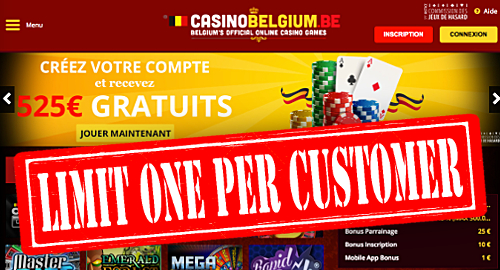 Belgium’s already restrictive online gambling licensing regime could get even more restrictive following a recent court ruling.
Belgium’s already restrictive online gambling licensing regime could get even more restrictive following a recent court ruling.
On Thursday, Belgian media reported that the Constitutional Court had ruled that the Belgian Gaming Commission (BGC) had no authority to issue a single gambling license to any online operator that offered more than one type of gambling product via the same website.
This challenge to the BGC’s licensing practices was brought by land-based gaming hall operator Rocoluc NV, which also offers online casino games via the Casinobelgium.be domain. Rocoluc’s view was that Belgian land-based licenses don’t permit operators to offer different types of gambling under the same roof, so why should online operators be treated differently?
Rocoluc has not been shy about using the courts to push back against its competitors, having mounted a legal challenge earlier this year of Ladbrokes’ de facto monopoly in offering virtual sports via its Belgian land-based betting offices.
Rocoluc ultimately prevailed in this challenge, and Ladbrokes was forced to withdraw virtual sports products from its betting shops. However, Ladbrokes’ Belgian-licensed betting site continued to offer virtual sports, prompting Rocoluc to sue the government for €500k in damages.
The BGC has yet to comment on Thursday’s ruling, but absent a decision to appeal Thursday’s ruline, it appears that Belgian-licensed online operators could be forced to reapply for separate licenses for each online product, while potentially making casino products inaccessible from an online betting URL and vice versa.
While online gambling activity is rising in the country, Belgium has one of the most restrictive regulatory regimes on the continent, if not the planet, and further curbs are in the works. Last month, legislators approved plans for a blanket ban on gambling advertising on television during live sports events, while also mulling the effective elimination of online gambling affiliate marketing.